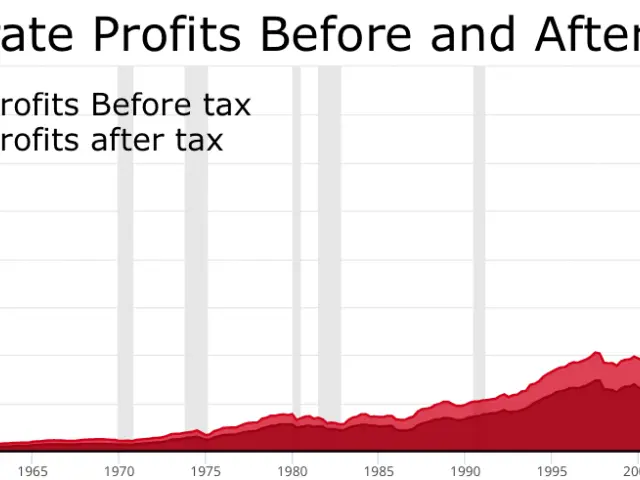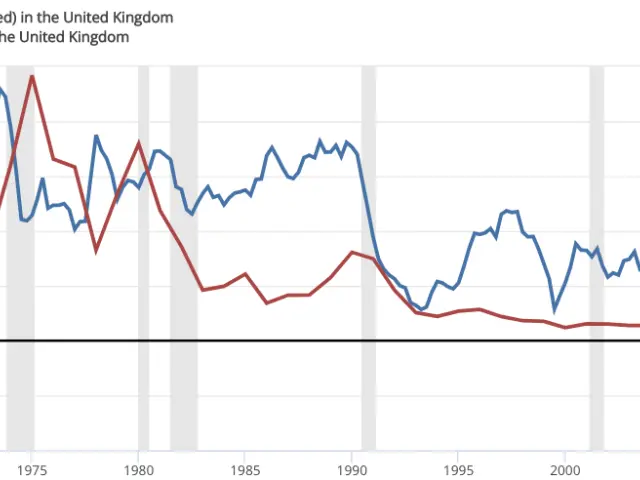Optimizing Sales Success with AI: Boosting Customer Worth Through 5 Strategies
Rewritten Article:
Bill Geary sits pretty as the Executive Vice President and General Manager - Communications & Security Solutions (CSS) at Wesco International.
In this digital age, smart business heads have realized that incorporating AI into their sales strategies holds the key to success in the fast-paced corporate world. As the competition intensifies, businesses need to be agile and optimize their operations while prioritizing customer experiences.
With its potential to boost profits, thoughtful applications of AI can propel businesses forward, ensuring they stay ahead in the game. Here's how AI can revolutionize your sales process, bringing greater customer value:
1. Boosting Customer Centricity Through Informed Insights
Advanced Customer Segmentation
Recent research by McKinsey reveals that personalized marketing can lead to a 10% to 15% increase in revenue. Yet, creating personalized marketing strategies for numerous customer groups simultaneously can be a strain for marketing teams. AI steps up to the challenge by converting extensive data sets into actionable insights.
Leveraging AI-driven customer segmentation, businesses can cluster customers based on factors like behavior, demographics, or purchasing trends. When coupled with AI's power, you can craft targeted marketing campaigns for each customer segment, maximizing your messaging's impact.
Personalized Recommendations
AI-powered recommendation systems cater to customers' individual preferences, ushering an era where they remain at the heart of new integrations and processes. These systems analyze patterns in customer data, including their purchase history and browsing habits, to serve tailor-made suggestions. By employing this strategy, conversion rates often soar [1].
For instance, a significant e-commerce player generates as much as 35% of its sales through an AI-based recommendation engine. By offering personalized experiences, businesses can engender a sense of recognition and understanding in customers, fostering a robust and enduring customer loyalty.
2. Maximizing Customer Feedback And Predictive Analytics
Customer Sentiment Analysis
To stand tall in the market, listening to customer feedback intelligently can provide a valuable competitive edge. Whether positive or negative, reviews serve as a potent force in swaying potential customers. AI makes sentiment analysis more precise by identifying repeated praises and frequent complaints [2].
With this in-depth knowledge of customer perception and attitude, determining areas needing improvement becomes relatively effortless. By reacting swiftly to customer needs and adapting your products, services, and sales processes accordingly, you set in motion a self-reinforcing cycle of positive customer experiences [3].
Predictive Analytics
Predictive analytics uses AI to envision future customer preferences and discern potential upsell or cross-sell opportunities before customers consciously realize them. By adopting a proactive approach like this, sales teams can react to customer needs and market trends more swiftly than their rivals.
3. Enhancing Forecasting Precision to Boost Sales Results
Sales Forecasting
Precise sales forecasting is vital for estimating demand and allocating resources intelligently. Traditional methods of forecasting frequently rely on imperfect observations and limited data sets. AI transforms this landscape by analyzing historical data, market trends, and external factors like economic conditions to generate accurate forecasts [4].
Performance Analytics
On the flip side of forecasting, AI can also sift through sales performance data to identify trends, patterns, bottlenecks, and growth opportunities. This equips managers with the information needed to make data-driven decisions and fine-tune sales tactics while keeping their teams agile and ahead of the curve.
4. Simplifying the Lead Management Process for Better Conversions
One of the most advantageous applications of AI in sales is lead scoring and prioritization, particularly in B2B sales where the path from lead to conversion can be intricate, involving elongated sales cycles and various stakeholders. AI streamlines this process via lead scoring, a method of scrutinizing large customer datasets to estimate conversion probabilities [5].
5. Chatbots, Virtual Assistants, and Workflow Automation
AI-Powered Chatbots and Virtual Assistants
AI-guided chatbots and virtual assistants are redefining interactions between businesses and customers. From answering instant queries about products and guiding customers through processes to scheduling appointments, AI agents can handle routine requests competently. This expedites responsiveness and enables sales teams to direct their efforts toward high-impact tasks [4].
Workflow Automation
Swifter than a flash, AI-driven workflow automation tools eradicate the need for monotonous repetition in tasks, allowing sales teams greater time to focus on revenue-driving activities. According to reports by Accenture, companies embracing AI automation grew their revenue by up to 50% compared to their peers by liberating resources and enabling their sales teams to prioritize customer interactions [4].
Bill Geary, in his role as the Executive Vice President and General Manager at Wesco International, understands the significance of integrating AI into sales strategies for competitive businesses. In this digital era, AI can revolutionize appointments by incorporating strategic chatbots and virtual assistants. For instance, AI-powered chatbots could automate scheduling appointments, allowing Geary to redirect his team's focus toward more critical tasks. Another strategic application of AI involves workflow automation, which can significantly reduce monotonous tasks, boosting efficiency and enhancing productivity. By employing AI in this manner, Geary can ensure Wesco International stays on top of the game, prioritizing customer experiences and optimizing operations for long-term success.







